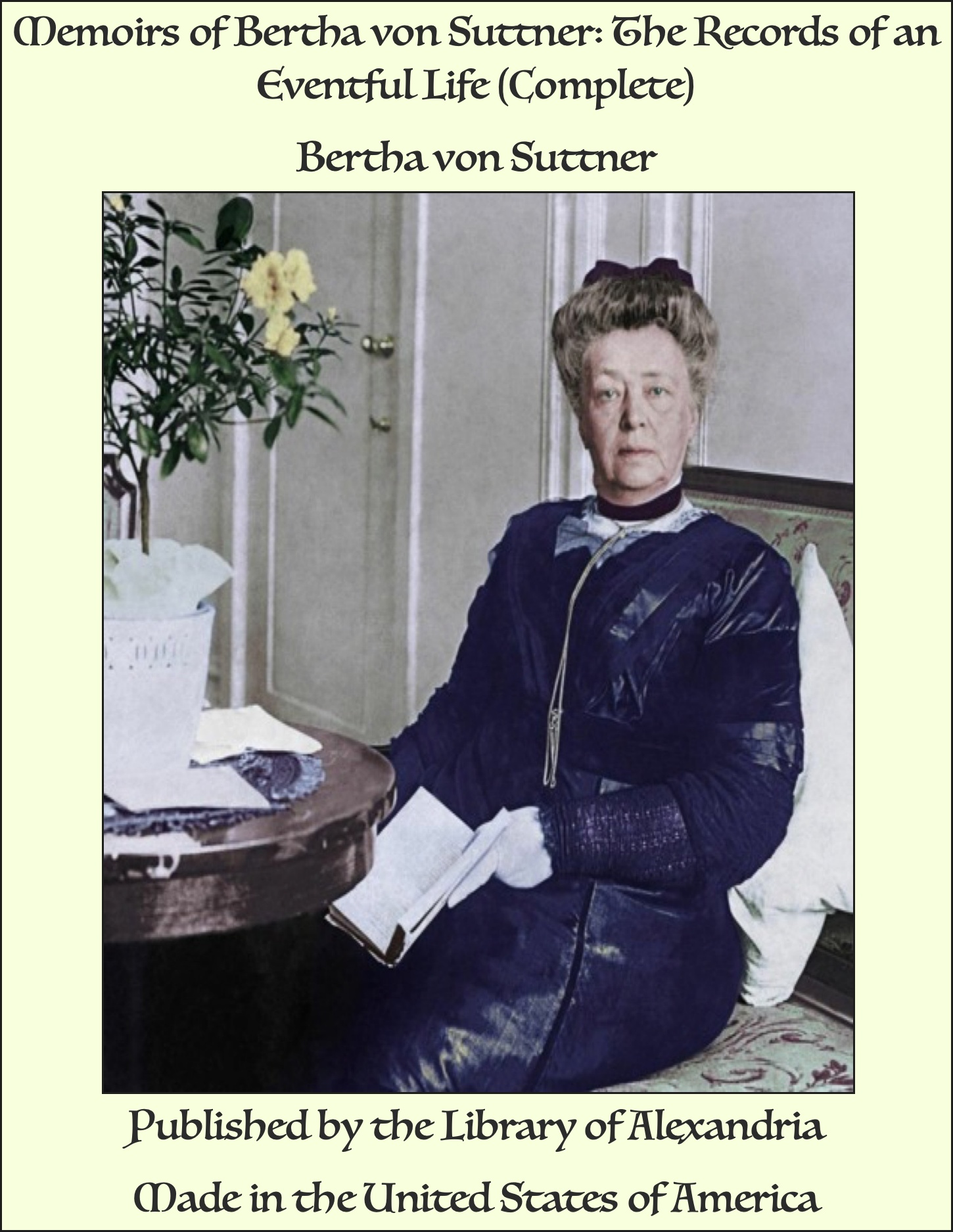Memoirs of Bertha von Suttner: The Records of an Eventful Life (Complete)
Bertha von Suttner
9781465666826
213 pages
Library of Alexandria
Overview
So now there existed in the capital of Germany a Peace Society, about which as a center branch societies would presumably group themselves in all the larger German cities. The proposed task of forming a widespread public opinion was, therefore, well underway. I saw with delight, in my imagination, an undeviating development of the movement. I clearly recognized, however, that the beginnings were comparatively insignificant. What were our two or three thousand organized members compared to the thousand five hundred millions that populate the earth? And how puny, not only in numbers but also in power and reputation, compared to the representatives and supporters of the old system! But what is the significance of the first violet-dotted patch of grass compared to the fields, stretching miles and miles, still covered with the snows of March? It signifies that the spring is at hand. What signifies the first gleam of dawn penetrating the mantle of night? It signifies that the sunrise is coming. Thus I accepted the modest results achieved up to that time by the peace idea, and harbored no doubt that the element of spring, the element of light that abides in it, must come to fulfillment in gradual but uninterrupted and ever swifter progression. I have no doubt of it either, even at the present day; but I have learned from experience that such movements do not take place in so straight a line and in such a regular tempo as I then supposed. It is a zigzag line, now attaining great height and speed, then sinking down again; it apparently vanishes, and then with a new start reaches quite unexpected points. And all direct, methodical (zielbewusste) work—to use the tiresome, hackneyed word—is on the one hand hampered, on the other helped, by unanticipated, invisible secondary influences; more often helped than hampered, for, where any innovation is to be introduced, its forces converge from all directions. Our life was now richly filled. We enjoyed two special blessings which one can hardly think of in combination,—impetuous reaching out into the wide world, and peace in our quiet corner. Full of hopes, expectations, struggles, in flaming enthusiasm or in overwhelming indignation, we set sail into the future; and a sheltered, safe little nest, beautifully pillowed with love and gayety, was ours at that time. Many expressed their pity for us because we were childless. The blessing of children is, indeed, regarded as the highest happiness; but I have never expressed in these memoirs one single word of regret for this lack, nor have we, either of us, ever complained of it. Possibly, if we had known that good fortune, we should not have been able to comprehend how such a deprivation can be borne without pain; but it is a fact, our childlessness never cost us a sigh. I explain this in this way: not only did we find perfect satisfaction in each other, but that need of living for the future which lies at the basis of the desire to have offspring and to work and provide for them was satisfied in our case by our vocation, which also was striving for the future, and which delighted in something still in its infancy, but growing and flourishing. Besides, we had our literary activity, and it is well known and recognized in popular language that authorship is a kind of paternity (Autorschaft ist eine Art Vaterschaft).


